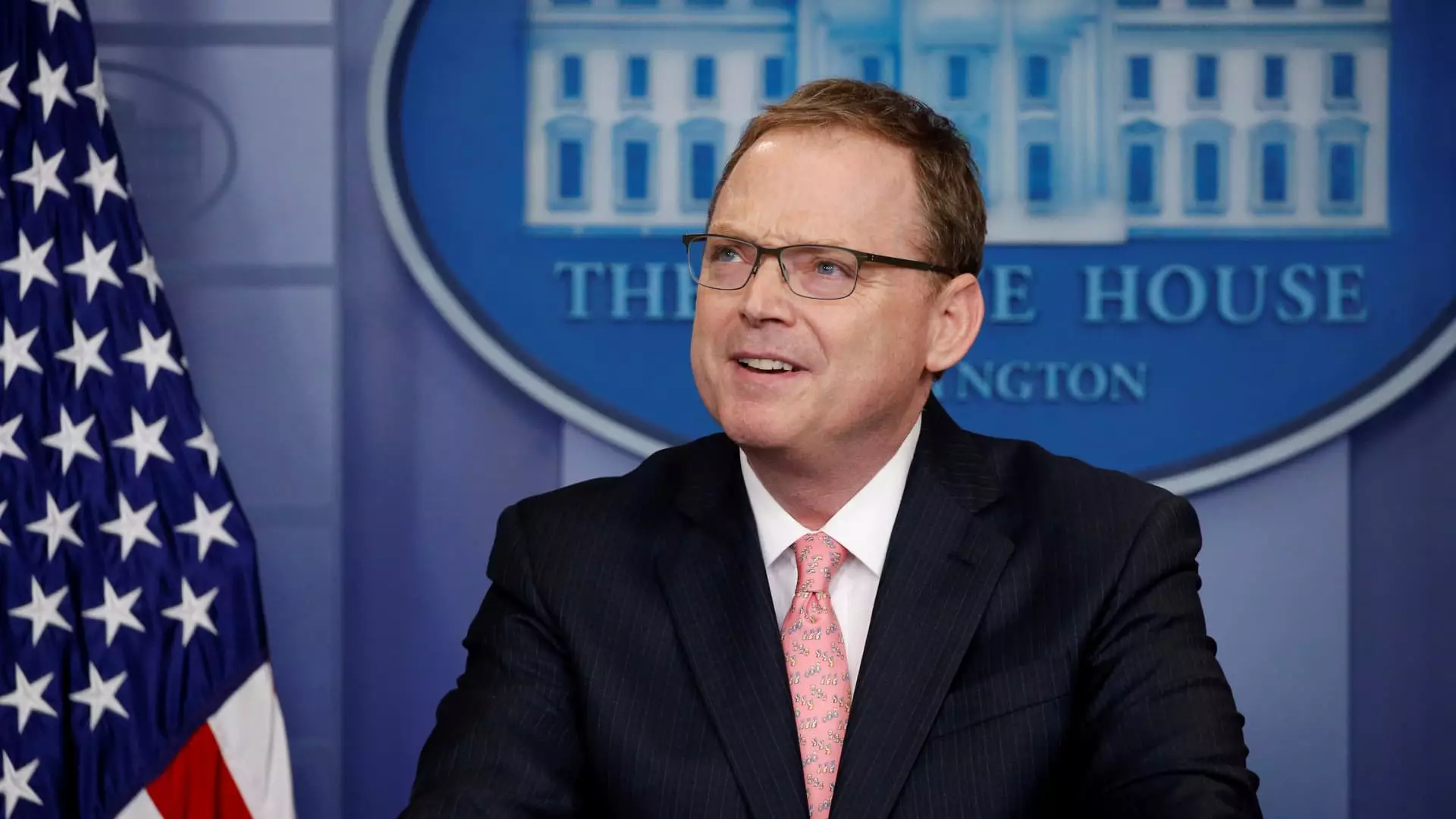As President-elect Donald Trump prepares to take office, he has made significant strides in forming his economic team by appointing Kevin Hassett to head the National Economic Council (NEC). This role is notably influential, placing Hassett at the nexus of the administration’s decision-making processes concerning critical issues such as tax policy, trade agreements, and regulatory reform. The NEC is essential for shaping the economic landscape of the nation, and Hassett’s seasoned experience is likely intended to ensure continuity and a particular ideological alignment with Trump’s administration.
Kevin Hassett, who previously served as the chairman of the Council of Economic Advisers during Trump’s first term, has consistently championed pro-business policies. His advocacy for corporate tax cuts and support for aggressive tariff strategies reflect a broader economic philosophy that favors deregulation and protectionism. At 62, Hassett brings a wealth of knowledge and experience from his tenure as a scholar at the American Enterprise Institute, a think tank known for promoting conservative economic principles. His past collaborations with Trump’s son-in-law Jared Kushner on immigration policy and sanctions further underscore his integral role in the Trump administration’s economic strategies.
One of the most pressing issues that will demand Hassett’s immediate attention is Trump’s renewed commitment to imposing higher tariffs on foreign goods. The President-elect announced plans for a 10% increase on imports from China and a staggering 25% tariff on products from both Mexico and Canada. Such moves, aimed at combating illegal immigration and drug trafficking, suggest a hardline approach to trade that could disrupt existing agreements like the United States-Mexico-Canada Agreement (USMCA). How these policies will play out in reality and their potential ramifications for international relations remains a focal concern as Hassett steps into his new role.
Trump’s selection of attorney Jamieson Greer as the U.S. Trade Representative indicates a commitment to solidifying the team before the inauguration on January 20. With key economic roles filling up, Trump is evidently focused on presenting a united front concerning his economic strategy. There’s also speculation surrounding his intention to nominate Scott Bessent, a seasoned hedge fund executive, as Treasury Secretary. Each appointment appears to be part of a larger strategy designed to bolster Trump’s economic agenda while addressing the complexities of the U.S. economy.
Looking Forward: The Challenges Ahead
With these appointments, Trump is not merely assembling a team; he is reinforcing an economic framework grounded in conservative values. The challenges ahead for Hassett and the incoming administration will be significant, particularly as they navigate tariff negotiations, international trade relations, and domestic economic policies that will resonate with both supporters and critics. The effectiveness of their strategies will ultimately determine the success of Trump’s economic vision in the coming years, setting the tone for the future of American commerce and its position on the global stage.

Leave a Reply